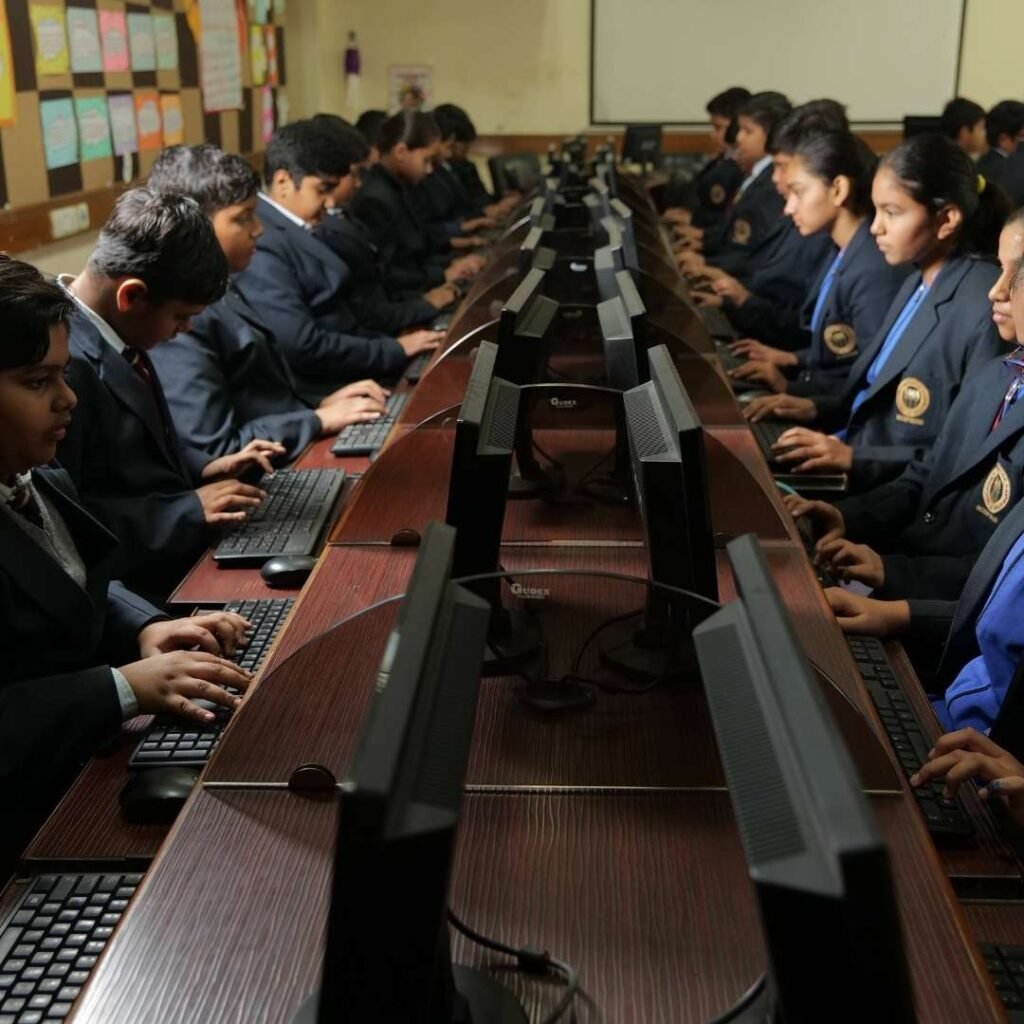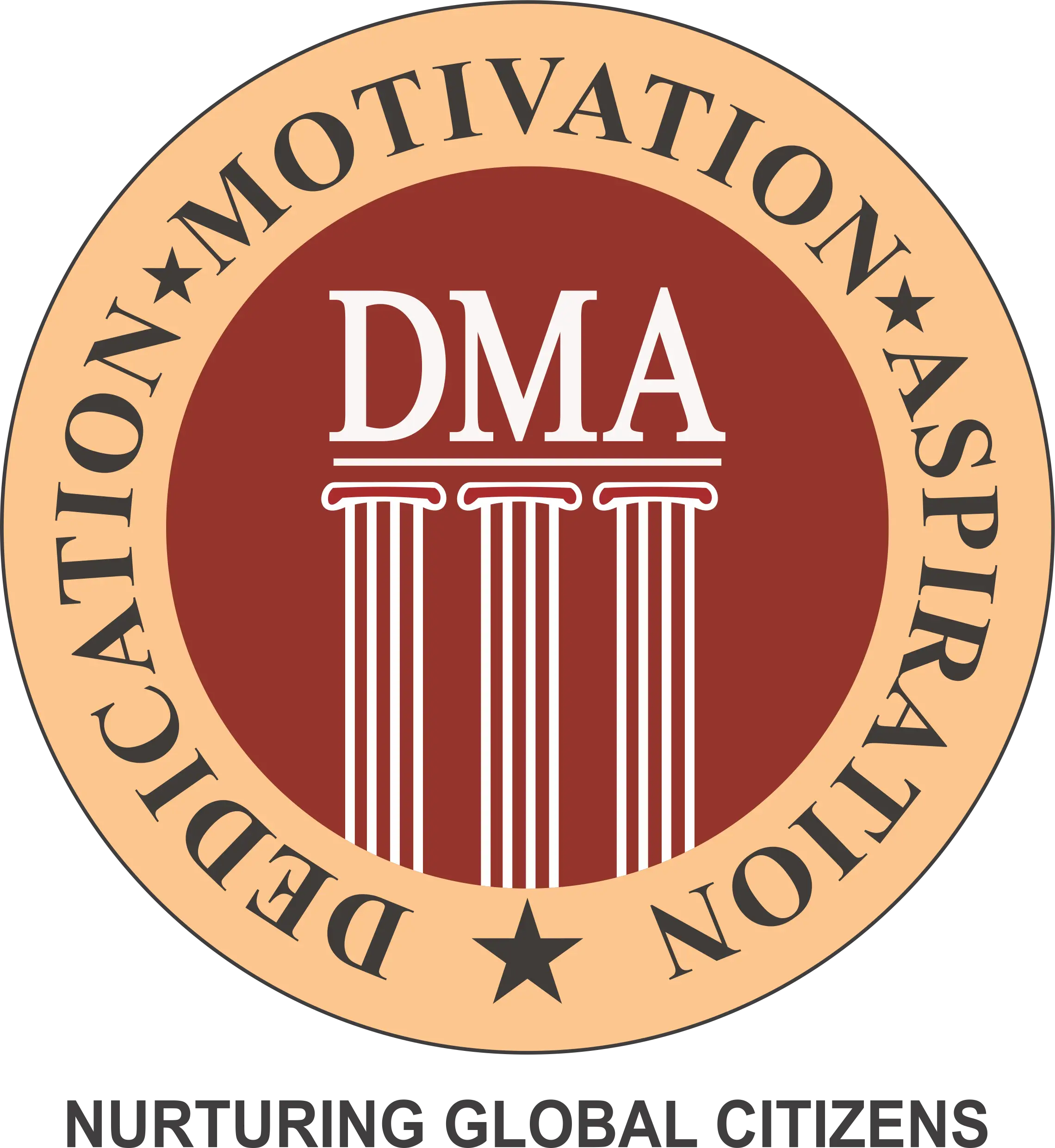Dayawati Modi Academy (DMA) is at the forefront of integrating technology into education, making significant strides with its IT Lab Facilities – Dayawati Modi Academy. All 69 classrooms have been transformed into smart, tech-enabled environments, enhancing learning experiences. This forward-thinking approach ensures that students are equipped with the skills needed for success in the 21st century, making technology an essential part of their educational journey.
At IT Lab Facilities – Dayawati Modi Academy, technology is integral to the learning process. With smart classrooms and interactive tools, students benefit from personalized learning experiences. They can engage with lessons at their own pace, using digital resources like smart boards and multimedia presentations to deepen their understanding. This adaptive approach enhances learning outcomes, preparing students with future-ready skills. The integration of technology creates a dynamic environment that supports both academic excellence and holistic development. It ensures that students are well-equipped for the digital world ahead.

Teachers at DMA are also adapting to this digital transformation. With training and continuous professional development, they are well-equipped to make the most of emerging technologies. From interactive e-learning modules to real-time assessments and feedback mechanisms, educators are utilizing advanced resources to track student progress and address learning gaps instantly. This proactive approach fosters a collaborative and supportive learning atmosphere, where students feel more engaged and motivated.
One of the significant benefits of DMA’s digital classrooms is the improved retention rates among students. The use of multimedia, animations, and simulations transforms abstract concepts into vivid, tangible experiences. Whether it’s a complex scientific principle, a historical event, or a mathematical formula, students are able to grasp and remember information more efficiently when it’s presented visually and interactively. This approach not only strengthens students’ foundational knowledge but also sparks their curiosity and enthusiasm for lifelong learning.
Moreover, digital classrooms at DMA encourage self-directed learning. With access to a variety of online resources and digital libraries, students can research, analyze, and synthesize information independently. This fosters critical thinking and problem-solving skills, essential competencies for success in today’s world. By learning how to learn, students become more resilient and capable of adapting to new challenges, ensuring that they’re prepared for a dynamic and technology-driven future.

DMA’s commitment to integrating technology goes beyond the classroom. The school regularly organizes workshops, seminars, and digital literacy programs to ensure that students and teachers stay updated with the latest advancements in educational technology. By continuously enhancing digital skills and fostering a deep understanding of technological applications, DMA nurtures a tech-savvy generation that’s ready to excel not only academically but also in their personal and professional lives.
In conclusion, Dayawati Modi Academy is a leader in the digital transformation of education, setting new standards for how students learn and how teachers teach. With its fully digitized classrooms and technology-driven learning environment, DMA empowers students to take control of their education, learn at their own pace, and better retain complex concepts. The integration of advanced digital tools not only makes learning more interactive and engaging but also equips students with critical skills like problem-solving, adaptability, and self-directed learning. By fostering a tech-savvy culture among students and teachers alike, DMA is preparing its students not just for academic success, but for thriving in a rapidly changing, technology-centric world. This innovative approach positions DMA as a beacon of progressive education, inspiring schools everywhere to embrace the future of learning and teaching.
